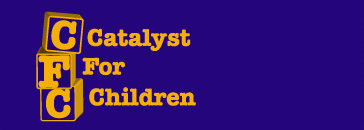 |
 |
||||||||
Cycle of Support Nobody in Ana Ibarra's family has made it past high school; some have not attended high school. Ibarra, who grew up next to strawberry fields in Watsonville and learned English eight years ago, says that stretching her horizons beyond the scope of babies, junior college, and blue collar jobs was always on her priority list. But figuring out how to do it wasn't so easy. "I really wanted to make a change," she says. "But my family is low-income, and it was very difficult. My mom, my brothers, none of my relatives had any information to help me get to college." Today Ibarra, a college freshman, sits around a conference table inside Building 86B at Cal State Monterey Bay. It's a school whose vision statement promises "service learning" in a multi-lingual and multicultural environment, and boasts more student support programs than any other Cal State University. A bright mural with upstretched hands and words like "happiness" and "safety" stands behind Ibarra. The building it is painted on provides office space for CSUMB's Early Outreach and Support Programs, which are designed to find students like Ibarra, who come from families in which nobody has attended college. The program grabs the students while they are still in high school, spurs them on to college, and helps them once they get there. Upward Bound, one of the eight CSUMB student support programs, found Ibarra at Watsonville High School and helped her deal with everything from filling out loan applications to figuring out how to convince her parents she could do it. "They were recruiting and signed me up," Ibarra says. "I'm planning to be a lawyer--I want to go back to the community I was raised in." . . . . . . . . . . . . . . . . . . . . . . . . . . . . . . . . . . . . . . . . . The programs at CSUMB, which have recently sustained cuts, are coordinated by three CSUMB graduates who were recent clients of Early Outreach themselves: Luis Sandoval, Jesus Ruvalcaba, and Cesar Velasquez. Sandoval says the program works for students who come from a background like his own. "When they are still in high school, the program stirs a passion in them that they can go to college," he says. "If they do come to CSUMB, we have the infrastructure to support them." Sergio Zendejas is one such student. Zendejas was five when he came from Mexico to Hollister. He says that his parents—though they didn't understand the school process—always encouraged him to go to college. "My dad would take me to watch him work on his construction jobs," Zendejas says. "He asked me if that's what I wanted to do when I grew up. I saw how hard he worked. He told me the only way out was through education." Zendejas joined the Educational Talent Search, or ETS program. He says counselors helped him fill out college forms, coached him through writing his personal statement, and organized field trips to colleges he was interested in. They also had workshops for parents that Zendejas says made his family more comfortable with the process. Ultimately, Zendejas, who was accepted to several colleges, picked CSUMB. He says that the ETS program provided a social and emotional support system once he entered college, beyond simply assisting with his school work. "I saw the community within the program," he says. "The bond between the people here is one of the biggest reasons I'm here." Today Zendejas works as an advisor in the Migrant Student Support Services program, helping new students fit into campus life. Jose Sanchez, a graduate of King City High School, says ETS provided him with the confidence to apply to a four-year college, and helped him win scholarships to afford it. "I didn't know anybody could go to college," he says. "I was a little bit afraid, I thought I wouldn't make it financially. I thought I should go to a junior college close to home." Laura Marquez, a sophomore at CSUMB and currently a counselor for Upward Bound, says her high school experience was anything but college prep. "They make community college seem like it's okay," she says. "It seems like they don't believe in you, because they push vocational. It's a stereotype and they don't realize it's a downfall." Yesenia Pantoja says that being a non-native English speaker made it harder to achieve the grades to get into college, and that her teachers at Alisal High School didn't encourage her to even think of applying. "You get held back in math and science because you don't speak the language," she says. "The school system itself falls into a stereotype that our culture doesn't know about college, and instead of helping us, puts us down." But many of the students say the cultural significance is very real, and to leave their family and move away to school was a hard pill for their parents to swallow. "I go home every weekend, but my dad is still angry at me for moving away," Blanca Melchor, a CSUMB sophomore, says. "I want to move out of the dorms and into an apartment next year, but he says, "Why not live at home?" "In our culture, a girl doesn't leave home until she's married," adds Estella Hernandez. "If I were in Mexico, I'd be old enough to get married and be having kids." She shudders. "I'm not supposed to be in school." The group, all of whom are now providing mentoring services to others, agrees that having each other to lean on has made all the difference to finishing school. "We blend in here, but at the same time, we have a support group," Hernandez says. And the students are quick to add that they are grateful for the support they have experienced. All say they are so motivated by making it to college that they want to help other students get there. "A lot of our success as mentors now is that we have more passion," Pantoja says. "We were once the student, and now we're the advisor and peer. We have more motivation to help the community and people in our shoes who are not getting help." "We are living the mission statement," Sandoval says. For more information about CSUMB's Early Outreach, call 582-4767. Articles reprinted courtesy of Monterey
County Weekly |
Bad News for Local Women |
|||